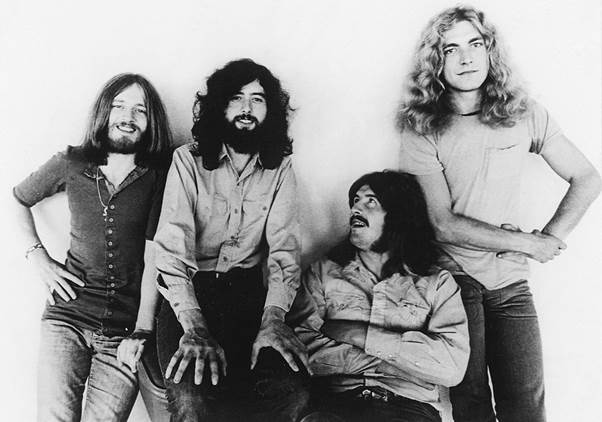In the pantheon of rock and roll, few figures command as much reverence and mystique as Robert Plant. As the lead singer of the legendary band Led Zeppelin, Plant didn’t just sing; he wielded his voice as an instrument of raw power, sensual poetry, and primal energy, forever altering the landscape of popular music. This artistic revolution, coupled with decades of shrewd career management and musical exploration, has culminated in an estimated net worth of $200 million. This fortune is not merely a reward for past glory but a living testament to an artist who has consistently evolved, refused to be confined by his own history, and smartly navigated the complex economics of the music industry. Unlike many of his peers whose wealth peaked in the 1970s, Plant’s financial standing has grown, bolstered by timeless royalties, successful solo ventures, and a relentless touring schedule that continues to draw massive crowds. This deep dive into Robert Plant’s $200 million net worth will explore the enduring financial power of Led Zeppelin’s catalog, the lucrative second act of his solo career, and the strategic decisions that have ensured his status as not just a music icon, but a financially astute and enduringly relevant artist.

The Led Zeppelin Foundation: The Engine of Immortal Royalties
The overwhelming majority of Robert Plant’s wealth is built upon the monumental success of Led Zeppelin. As the band’s primary lyricist and frontman, he shares in one of the most valuable music catalogs in history. The revenue streams from this era are diverse and incredibly potent, designed to generate income for generations.
- Record Sales: Led Zeppelin has sold over 200 million records worldwide. Their albums, including Led Zeppelin IV, Houses of the Holy, and Physical Graffiti, continue to sell thousands of copies each week, decades after their release. Plant earns a significant songwriter’s royalty (through his BMI affiliation) and a share of the master recording royalties from every single sale and stream.
- Streaming and Digital Downloads: The band’s migration to streaming platforms like Spotify and Apple Music in the 2010s opened a colossal new revenue stream. Their songs boast billions of streams, with “Stairway to Heaven” alone accounting for hundreds of millions. These digital plays provide a continuous, modernized royalty flow that supplements traditional sales.
- Publishing and Licensing: The licensing of Led Zeppelin’s music is handled with extreme exclusivity and commands astronomical fees. Their songs are rarely licensed for commercials, making any placement a major event that can cost a brand millions of dollars. The use of “Rock and Roll” in Cadillac commercials is a famous example of a deal that would have netted each band member a fortune. Furthermore, every radio play, movie sync, and television show usage generates publishing royalties for Plant as a co-writer.
- Box Sets and Reissues: The band’s strategy of periodically releasing remastered box sets with unreleased material creates recurring events that drive massive sales, effectively introducing their music to new generations while compelling dedicated fans to repurchase premium editions.

Live Performances: From Stadiums to Reunions
Led Zeppelin’s touring history is the stuff of legend. During their heyday, they broke attendance records and set new benchmarks for concert revenue. While specific figures from the 1970s are elusive, it is estimated the band grossed hundreds of millions in today’s dollars from their relentless touring schedule.
However, the most significant live payday came much later. The band’s one-off reunion show in 2007 at London’s O2 Arena to honor Atlantic Records founder Ahmet Ertegun was a historic event. The show itself was a massive undertaking, but the subsequent release of the concert film Celebration Day in 2012 became a global phenomenon. The film grossed tens of millions at the box office, and the accompanying DVD and Blu-ray sales added many millions more to the band’s coffers. It is estimated that this single reunion project netted each member well over $20 million, a massive injection into Plant’s net worth long after the band had ceased regular activity.
The Solo Career and Band of Joy: A Lucrative Second Act
A critical factor in Plant’s sustained wealth is his successful and respected post-Zeppelin career. Unlike some artists who fade into nostalgia, Plant actively pursued new musical directions, ensuring a continuous flow of income beyond Zeppelin royalties.
- Solo Albums and Tours: Beginning with Pictures at Eleven in 1982, Plant launched a solo career that has produced over ten studio albums. While not matching Zeppelin’s commercial scale, albums like Now and Zen, Fate of Nations, and Carry Fire have been critical and commercial successes, generating revenue from sales and, importantly, solo touring.
- The Raising Sand Phenomenon: His 2007 collaborative album with bluegrass singer Alison Krauss, Raising Sand, was a watershed moment. Produced by T-Bone Burnett, the album was a surprise mega-hit, selling over two million copies worldwide, winning five Grammy Awards (including Album of the Year), and introducing Plant to a whole new audience. The success of this project proved his commercial viability outside the hard rock genre and resulted in a highly profitable world tour.
- The Sensational Space Shifters: His work with his band, the Sensational Space Shifters, allowed him to tour consistently, re-interpreting his own catalog (both solo and Zeppelin) in new and interesting ways. These tours, playing large theaters and festivals worldwide, provide a substantial and reliable annual income.
Business Ventures and Publishing Ownership
Plant’s financial acumen extends beyond performance royalties. He has always maintained a keen interest in the business side of music.
- Songwriting Publishing: His ownership stake in the publishing rights to the Led Zeppelin catalog is arguably his most valuable asset. This means he gets paid whenever the music is used, regardless of who owns the master recordings. This intellectual property is a perpetual money-generating machine.
- Strategic Control: Plant, along with Jimmy Page and John Paul Jones, has maintained tight control over the Led Zeppelin brand and catalog. Their selective approach to licensing, re-releases, and public appearances has created an aura of exclusivity that keeps demand and value astronomically high.
Real Estate and Personal Investments
While less publicized than his music career, Plant has made savvy investments in real estate. He owns a beautiful, sprawling farm in the Welsh countryside, as well as property in London and elsewhere. These assets represent a significant portion of his illiquid net worth, providing stability and value appreciation away from the volatility of the music industry. He is known for a relatively modest lifestyle compared to his net worth, favoring personal comfort over ostentatious displays of wealth, which has likely aided in preserving his fortune.
Philanthropy and Personal Life
Plant is known for supporting various charitable causes, though he typically does so privately. He has been involved in fundraising for charities in his native Midlands and has supported causes related to children’s welfare and environmental conservation. His personal life, marked by profound tragedy with the loss of his son Karac in 1977, has shaped a man who values privacy and family, grounding his immense success in a perspective that extends far beyond financial accumulation.

Conclusion: The Anatomy of a $200 Million Rock Fortune
Robert Plant’s $200 million net worth is the result of a multi-tiered and self-reinforcing financial ecosystem:
- The Perpetual Led Zeppelin Machine: The foundational layer, providing immense, never-ending royalties from one of history’s greatest catalogs through sales, streaming, and ultra-exclusive licensing deals.
- The Reunion Bonanza: The monumental, one-off O2 reunion and its subsequent film release, which acted as a massive capital event, adding tens of millions to his wealth in the 21st century.
- The Sustained Solo Career: A continuous output of respected music and profitable touring that ensures he is never solely reliant on past glory, providing a modern income stream and maintaining his relevance.
- Business Acumen & Ownership: His unwavering control over his publishing and the Zeppelin brand, treating it not just as art but as invaluable intellectual property to be managed with strategic precision.
Robert Plant’s fortune is more than a reward for being in the right band at the right time. It is the product of timeless art, smart business, and an unwavering commitment to musical integrity that has kept audiences—and revenue—flowing for over five decades. He is not just a relic of rock’s golden age but a thriving artist whose golden voice continues to be a golden ticket.

